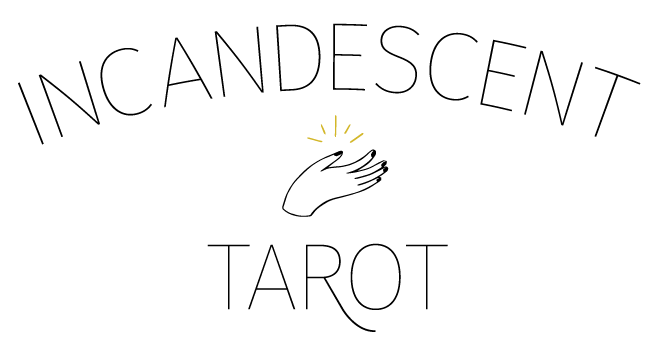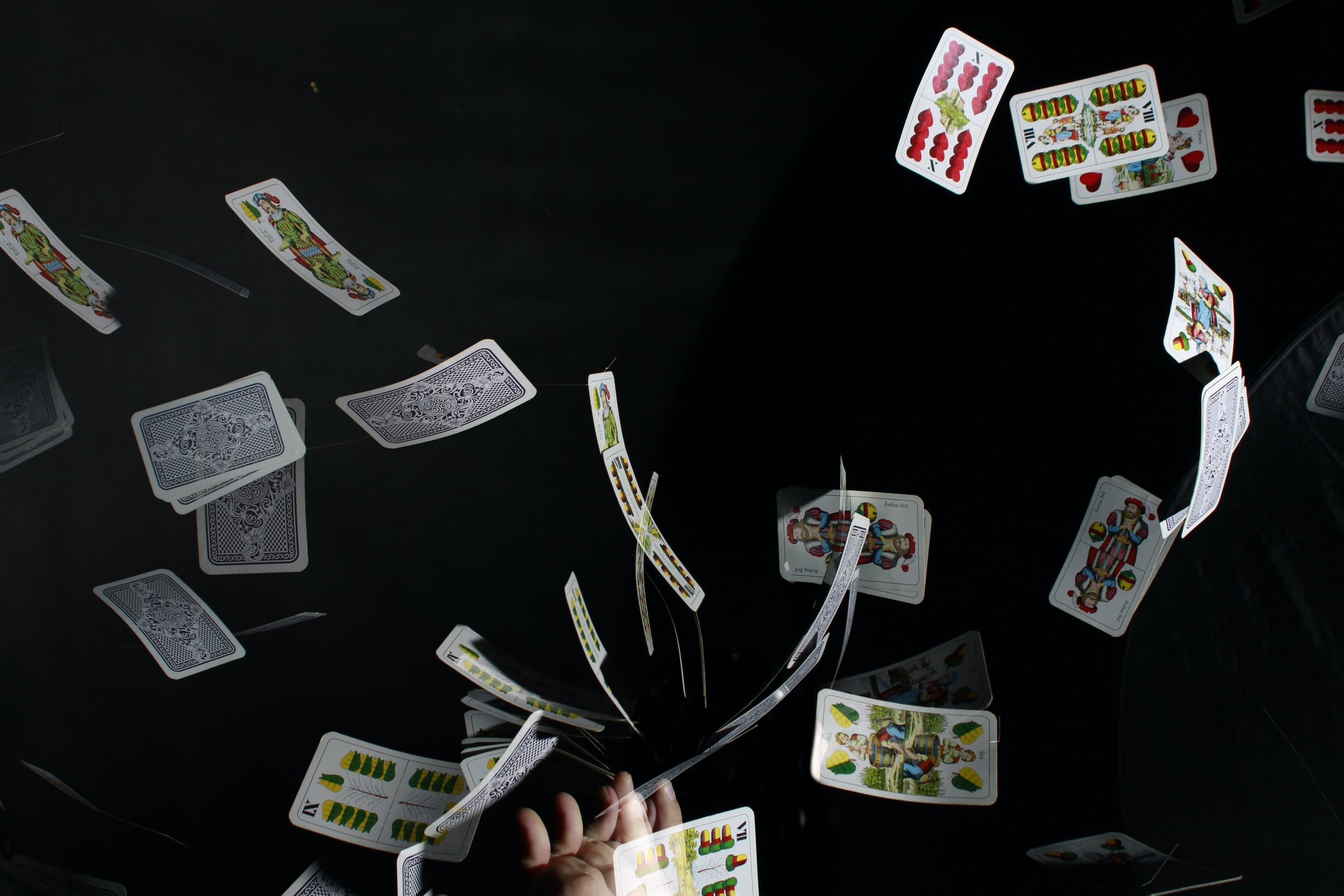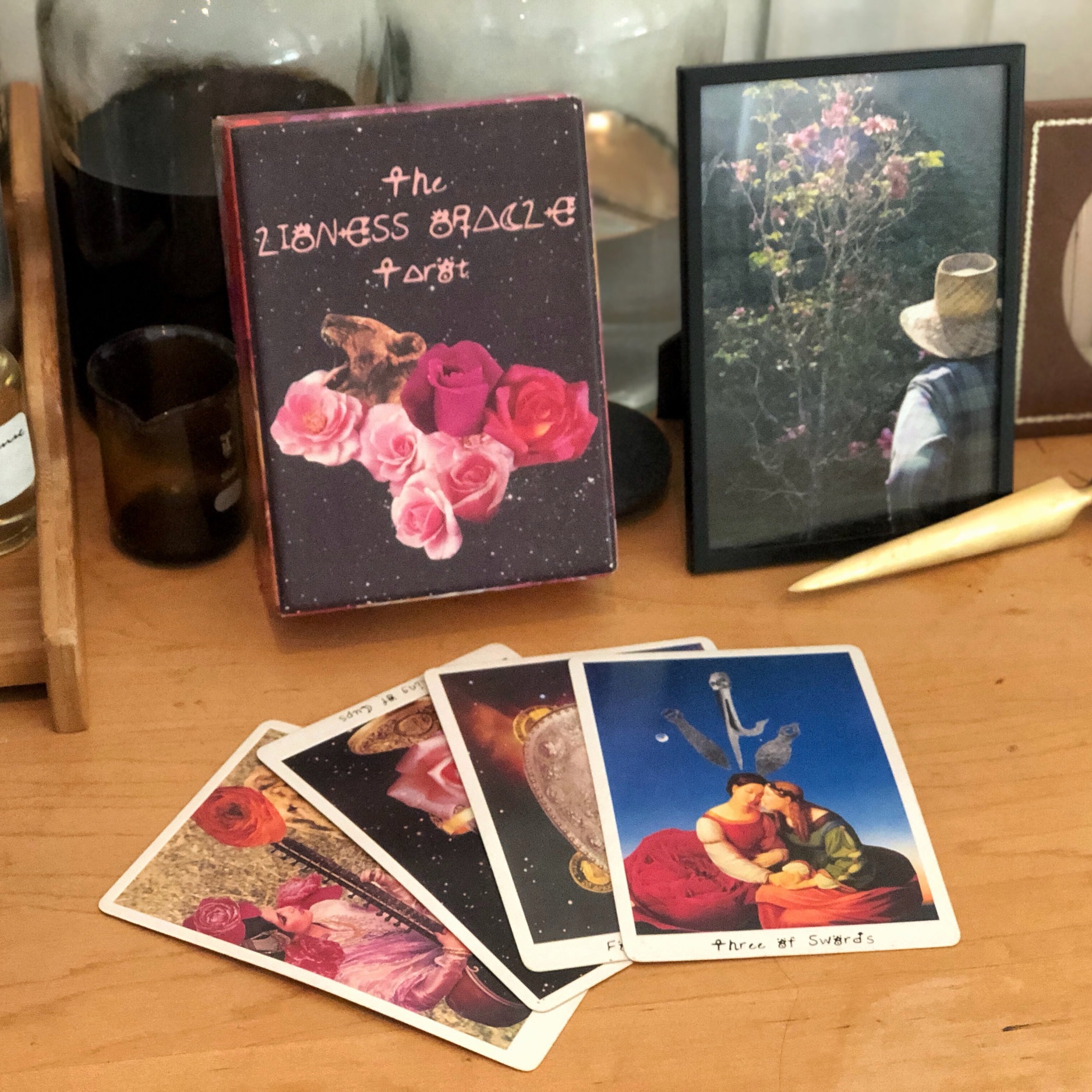5 Ways to Take In Your Tarot Reading
Getting a tarot reading can be overwhelming. There's a lot going on! The images, meanings, and connections can all blur together after the reading is over, much like a spell has been broken. What seemed clear-cut in the moment becomes muddled and you might wish you could replay the entire session to recapture each and every insight.
Before you do, take a deep breath. This is all part of the process. Like a delicious meal, it takes time to digest a reading. The more in-depth and large, the longer it takes. That being said, here are five ways to maximize your knowledge from the cards while minimizing stress. And remember, the message that's the most important will be the most clear to you.
1. Be Present
It's important to stay present both during and after the reading. Focusing on "catching" important connections takes you out of the experience and cuts off your intuition. You're essentially handing over the reins to your thinking brain, and we all know that brain loves to worry! Practice letting go and opening up to the "flow" of the reading, trusting that in doing so your energy will have a clearer path to interact with the cards.
2. Follow Your Intuition
Use your senses to access any intuitive messages coming from the cards. These can be tricky to pinpoint at first and a little off-putting for some since they don't take the linear, matter-of-fact form of thoughts. Just try to go with it and see where it takes you! Follow the more ephemeral signs - feelings that come up, impressions, and memories. This can be in the forms of colors, visions, even smells.
For example, I might see the Five of Cups and suddenly think of earl grey tea to the point where I can almost smell it. If I pull on that thread I might discover that it reminds me of my grandmother, adding more personal meaning to the card and the reading at large. These connections are where a lot of the magic of the tarot occurs and they create lasting meaning and a deeper understanding of the cards.
3. Trust the Process
Tarot is about ceeding control and opening up to new energies and ways of thinking. That's whay it's such a powerful tool - it gives us an alternative to our go-to form of problem-solving: rational thought. That's not to say tarot is irrational, it's just that the pathway we take to arrive at a deeper knowledge isn't the one most traveled. Placing trust in the cards and our intuition gives us an opportunity to expand our way of looking at the world and our issues. Take a deep breath, welcome this energy in, and let it unfold as it will.
4. Pay Attention to First Impressions
You can safely gauge the energy of a card or reading by your first impressions. They're informing you of the dominant theme of the situation and/or most important insights. Whatever jumps out at you is noteworthy and key to your understanding of the reading.
5. Go With the Flow
Sometimes we have an idea of how our reading will unfurl and anything that deviates can cause us frustration. Don't despair if something just isnt' falling into place or seems to be taking you in a different direction. Lean into the current instead of fighting it. Tarot can be circuitious and meandering, but if one thing's for sure it often deposits us at a much more interesting and rich place. Give yourself time to get acquainted with the new and unexpected messages of the cards. Things will settle down in good time.
For me, following these reminders helps me remain open to the message of the readings I do for myself and also fosters a unique and deep relationship to the cards. How about you? What do you do to interact with and digest your tarot readings?











It’s so easy to get serious when reading tarot. With cards like The Tower, The Hermit, and the Ten of Swords, who could blame you for painting sweeping pictures, waxing poetic about existential dilemmas, and focusing on the mythic in the mundane? I’ve noticed, however, that sticking to these areas when reading can lead to burnout, not to mention a limited understanding of the cards. If everything is epic, how can you go to the cards to understand smaller issues like daily decisions, exciting and low-stakes choices, or even open-ended explorations of themes?